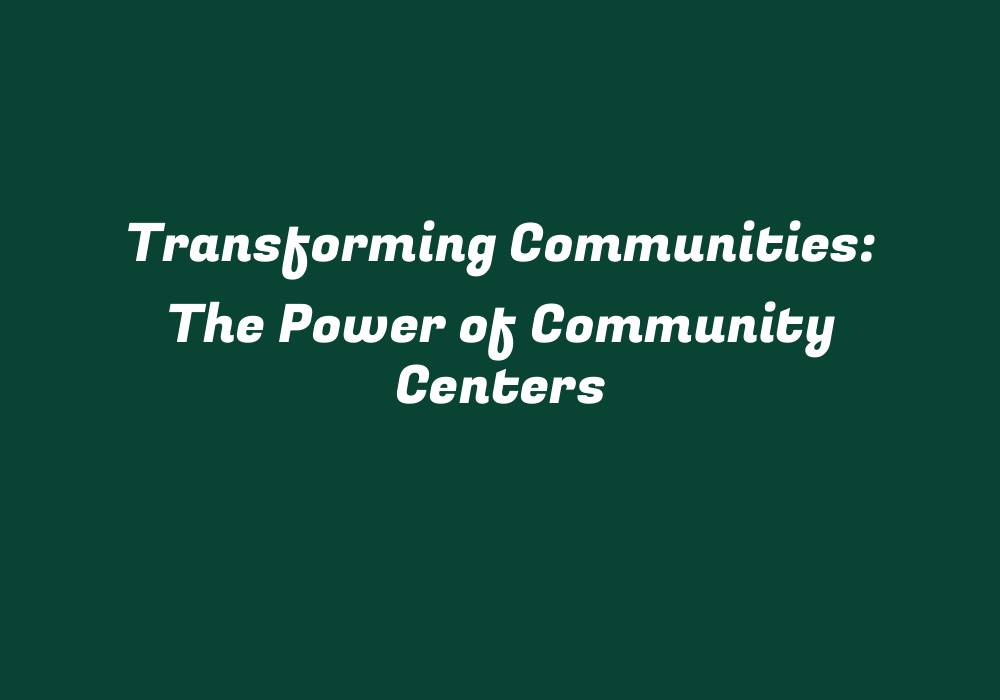Transforming Communities: The Power of Community Centers
In today’s world, where communities are experiencing rapid changes and urbanization, community centers play a crucial role in fostering social cohesion, personal development, and overall well-being. These facilities provide essential services that address various aspects of life for residents, making them powerful tools to revitalize neighborhoods and promote the health and growth of the community.
The Role of Community Centers in Neighborhood Development
Community centers serve as a hub for social activities, offering various facilities such as sports and recreational areas, libraries, educational programs, and cultural events. They act as a physical space where people can engage with one another, learn new skills, and enjoy leisure time together. By providing these resources, they contribute to a sense of belonging among residents and create an environment that encourages community participation.
Addressing Socio-Economic Inequalities
Community centers often target underserved populations facing economic challenges. They offer essential services such as job training, adult education programs, and financial literacy courses to help individuals overcome barriers and improve their circumstances. By addressing these issues, community centers provide opportunities for personal growth and contribute to the overall socio-economic development of their communities.
Promoting Health and Well-Being
The provision of health services within community centers is critical in helping residents maintain good physical and mental wellness. Many facilities have medical clinics that provide primary care, preventive screenings, and basic treatments to those who may not have access to other healthcare options. These services empower individuals to make informed decisions about their health, fostering a culture of self-care within the community.
Nurturing Cultural Diversity
Community centers serve as a bridge between different cultural groups, providing opportunities for dialogue and understanding. They often organize events that celebrate various traditions and customs, promoting harmony among diverse populations. In doing so, they foster a sense of inclusivity, helping to break down social barriers and combat prejudice.
Enhancing Youth Development
Community centers are vital for supporting the growth and development of young people in various aspects of their lives. They provide opportunities for academic support through tutoring programs and after-school activities, while also promoting life skills such as teamwork and conflict resolution. By encouraging youth engagement and personal responsibility, community centers contribute to a more secure future for these individuals.
Building Stronger Connections with Local Businesses
Community centers are not just limited to providing essential services within their walls; they also collaborate with local businesses to promote economic growth in the area. By working together, community centers and private entities can leverage shared resources and expertise to create initiatives that benefit the entire community.
Conclusion: Community Centers as Catalysts for Transformation
Community centers have proven their ability to positively transform neighborhoods by addressing various aspects of life within a diverse range of communities. They empower residents through access to essential services and foster connections among individuals from different backgrounds. By playing these roles, community centers demonstrate the power they hold to promote growth, unity, and well-being in the communities they serve.
In conclusion, community centers continue to play a vital role in shaping the lives of residents across neighborhoods, serving as hubs for social, economic, health, cultural, and educational activities. As these facilities continue to evolve, their potential for transforming communities and nurturing a more resilient society will only increase.
